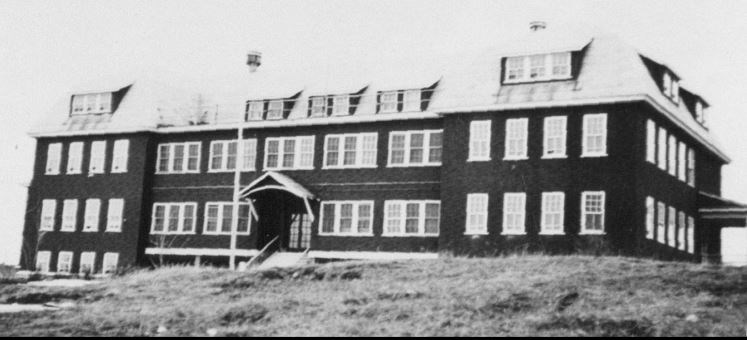The organization leading the search for missing children and unmarked graves at the Pelican Lake Residential Institution says it plans to conduct interviews with survivors in the new year.
Bikiiwewinig Nindawaashishiiminaanak — the Bringing our Children Home Initiative — recently issued a notice on social media asking people if they had knowledge about missing children who attended the Pelican Lake Indian Residential School. It also asked people who might have knowledge of missing patients from the former Sioux Lookout Zone Indian hospital.
James Cutfeet, operations director for the initiative, said the purpose of putting the poster out was to find survivors who may have attended the residential school.
“The stories that we are hoping to get from the survivors themselves will guide us to do our mapping of where potential searches can be conducted where potential unmarked graves are,” he said.
Cutfeet said they are preparing to conduct interviews starting from January to March in Thunder Bay, Winnipeg, or in their home communities if needed.
The Bringing Our Children Home Initiative, run through Lac Seul First Nation, signed a reaffirmation of relationship and a memorandum of understanding in October with project partners Northern Nishnawbe Education Council and the Sioux Lookout First Nations Health Authority.
Cutfeet said since then they’ve been trying to catch their breath from all the work they’ve done this year, with community consultations and two working circles in the summer and another one in October.
He said residential school survivors have been instrumental in guiding the initiative, developing five protocols during the first three meetings. The five protocols for the process are reconciliation, reclamation, truth, searches, and healing.
“It's a very important process and only the survivors are the ones that can do that for us and again they will be really reliving their trauma,” he said.
Cutfeet said since survivors are on a healing journey, there can be many triggers from different aspects in their daily lives. They will need to have support available.
The initiative has a mental health team available on call should the survivors need to have somebody just to be with them for comfort and to talk about what they went through if needed, Cutfeet added.
He also said many of the survivors are at an age where they need somebody to travel with them for the interviews, which the initiative will provide.
Cutfeet said the mental health team checks in with each of the participants to see how they're doing after they return home.
“So you can imagine, decades of abuse being kept and locked in within any of the survivors and as well as the inter-generational survivors. It's going to take a while before they say I'm ready to share my story.”
He said not everybody is going to be your corralled into one large group and then be told, “you're going to heal.”
“Healing is not going to happen overnight,” he said. “It's going to take decades, it might even take centuries for that matter, because people are at the different stages of their healing journey.”
Cutfeet said the issue was personally important to him because, “my mother was a residential institution survivor and I didn't find that out until she was in her late 50’s.”
“I always wondered why she was the way she behaved,” he said. “She was non-demonstrative of affection.”
Cutfeet said as a result of attending residential school, she didn't learn any parenting skills.
“None of the survivors did,” he said.
In addition to searching for missing children, he said, “the survivors have a child within them that needs to be a healed because they were too young when they were forcefully removed from their communities and that child is still in them and needs to be healed.”
Cutfeet said the communities need start preparing plan to support the survivors, families and communities to deal with the emotional upheaval that will happen when the missing children and graves are found.
“This initiative will be a catalyst to the bigger picture of reconciliation, reclamation, [and] finding truths,” he said.
